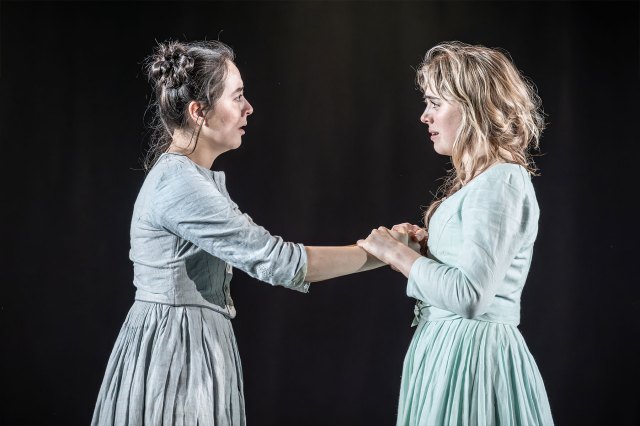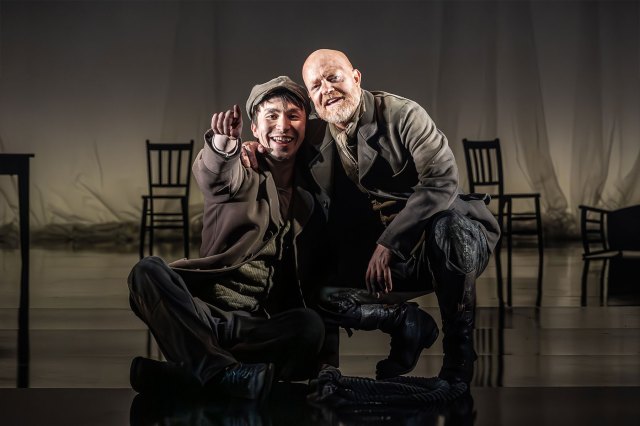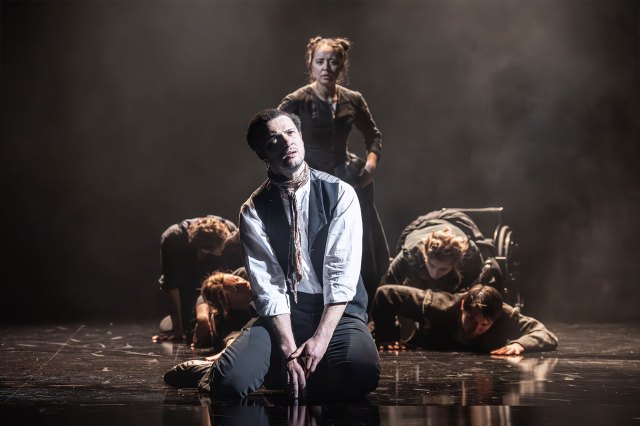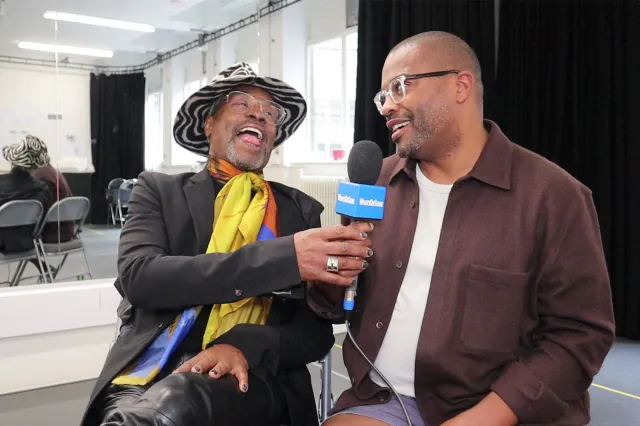London Tide at the National Theatre review – an honourable yet shallow Dickens adaptation
The new adaptation of Charles Dickens’ Our Mutual Friend runs at the Lyttelton Theatre until 22 June

Unless it happens to be the pithy and tightly structured A Christmas Carol, there’s a problem with putting a novel by Charles Dickens on stage: length. The Victorian author favoured a sprawling style, multiple grotesque characters and infinite digressions and diversions to make his points.
In 1980, David Edgar and Trevor Nunn solved the problem by making an eight-and-a-half hour version of Nicholas Nickleby that ran over two parts and spanned a new type of event theatre. In tackling Our Mutual Friend, Dickens’s last completed and more intractable novel, adaptor Ben Power and director Ian Rickson have taken a different approach, cutting all extraneous characters and keeping only the broad plot and moody Thameside settings. Then adding some songs by PJ Harvey.
It still runs at more than three hours and, though it captures the stench of obsession that runs through the narrative just as strongly as the river from which a corpse is rescued in the opening chapters, it fundamentally alters the thrust of the storytelling and the morality, casting different lights on its murky waters.

It begins, thrillingly, with the cast rising from below the stage into the playing area, like so many bodies resurrected from the deep, which – along with the mournful song they then sing – sets the theme of death and rebirth that binds the story. In an impressive feat of compression, Power then focuses on two entangled plots, centred on two different women, boatman’s daughter Lizzie Hexam (Ami Tredrea) and poverty-stricken Bella Wilfer (Bella Maclean) whose fates are both tied to the mysterious John Rokesmith (Tom Mothersdale).
For a long time, until the interval, he allows the relationships between these characters to remain mysterious, sustaining a thriller-like tension before the big reveal. It doesn’t quite work, but it is helped by Rickson’s direction which combines precise nuance in each encounter with a breadth of vision that sets characters at great, stylised distances across the space.
Bunny Christie’s design leaves the stage virtually bare, apart from wooden posts like piers down the side, and plastic sheeting across the back, where the cast often stand in artful silhouette, their movements, choreographed by Anna Morrissey, surging into shapes of rising and falling. A band of musicians, led by Ian Ross, remains on one side throughout. Jack Knowles’ huge lighting rigs fly up and down with the swell of the river, expanding and constricting as the action changes.

There’s much to admire about this. It strips Dickens of his fusty period setting and creates images of striking watery beauty. The cast is strong, with Jamael Westman bringing warmth and grace to the indolent lawyer Eugene Wrayburn and Mothersdale lending Rokesmith melancholy intensity and charm. Both Bella and Lizzie are given considerably more agency than they have in the novel, and Tredrea and Maclean turn them into rounded, spirited women. Peter Wight is a gentle joy as the kindly Boffin, and Ellie-May Sheridan gives a very contemporary sounding Jenny Wren, the toys’ dressmaker, bite and humour.
And yet. In so fiercely simplifying and pruning the book’s gallery of characters, those remaining aren’t given much context (the dust that powers the wealth that corrupts the lives of those it touches barely gets explained) or a chance to develop. Everyone, even Lizzie, badly treated by her brother Charley (Brandon Grace) who is one of Dickens’ long line of misguided social climbers, feels thinly drawn. The intent of schoolteacher Bradley Headstone (Scott Karim), a violent stalker and suitor, becomes comic rather than sinister. And the songs, which are dark and relentless as well as impressive, have a tendency to stop the action rather than move it on.
By the second half, when the production has to move the plot along and explain an awful lot to reach the end, it feels bogged down in the shallows, never quite plunging into the depths of the story’s meaning or fulfilling its own intelligent and honest intentions. It’s full of integrity, but lacks drama.


















